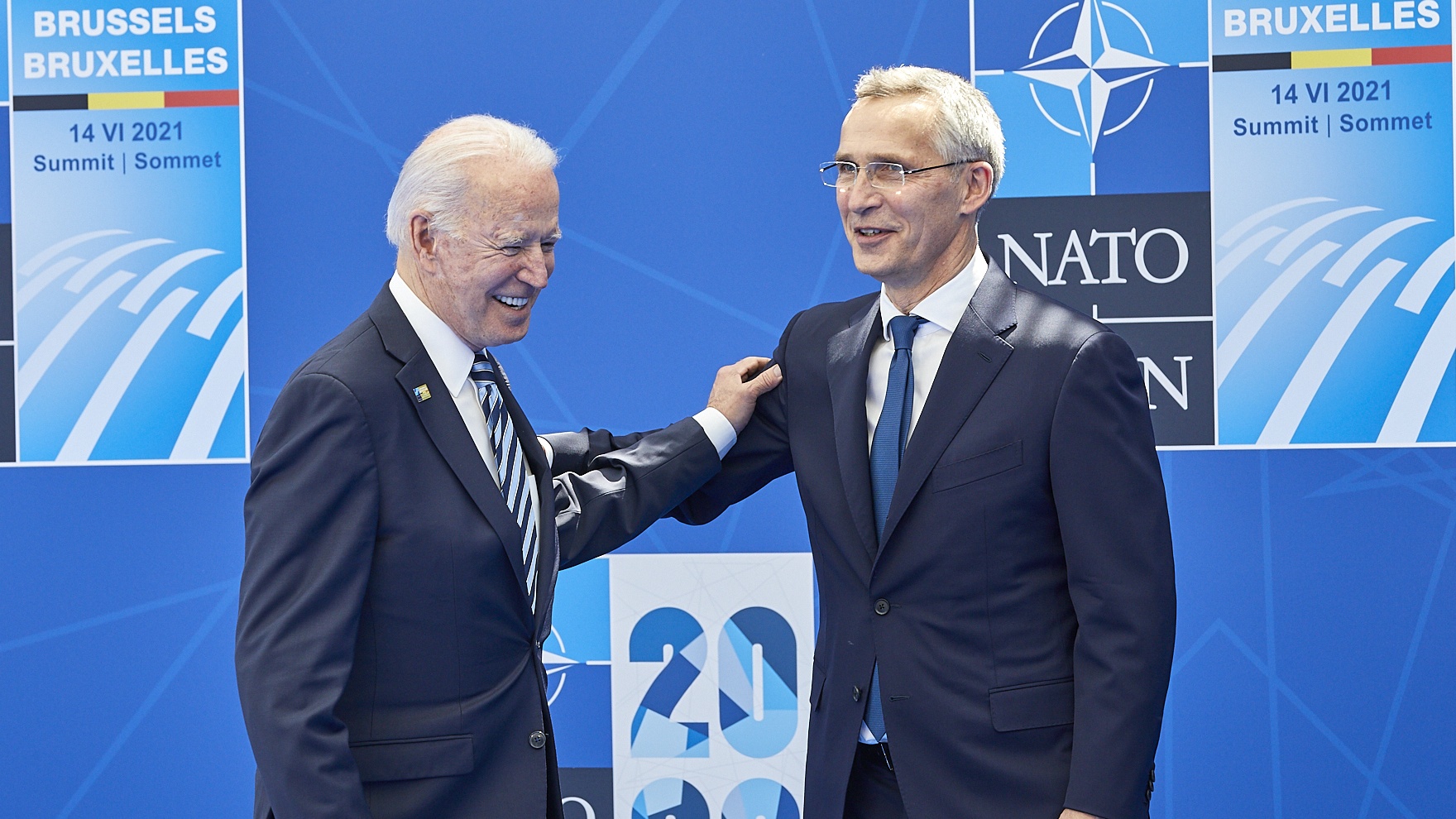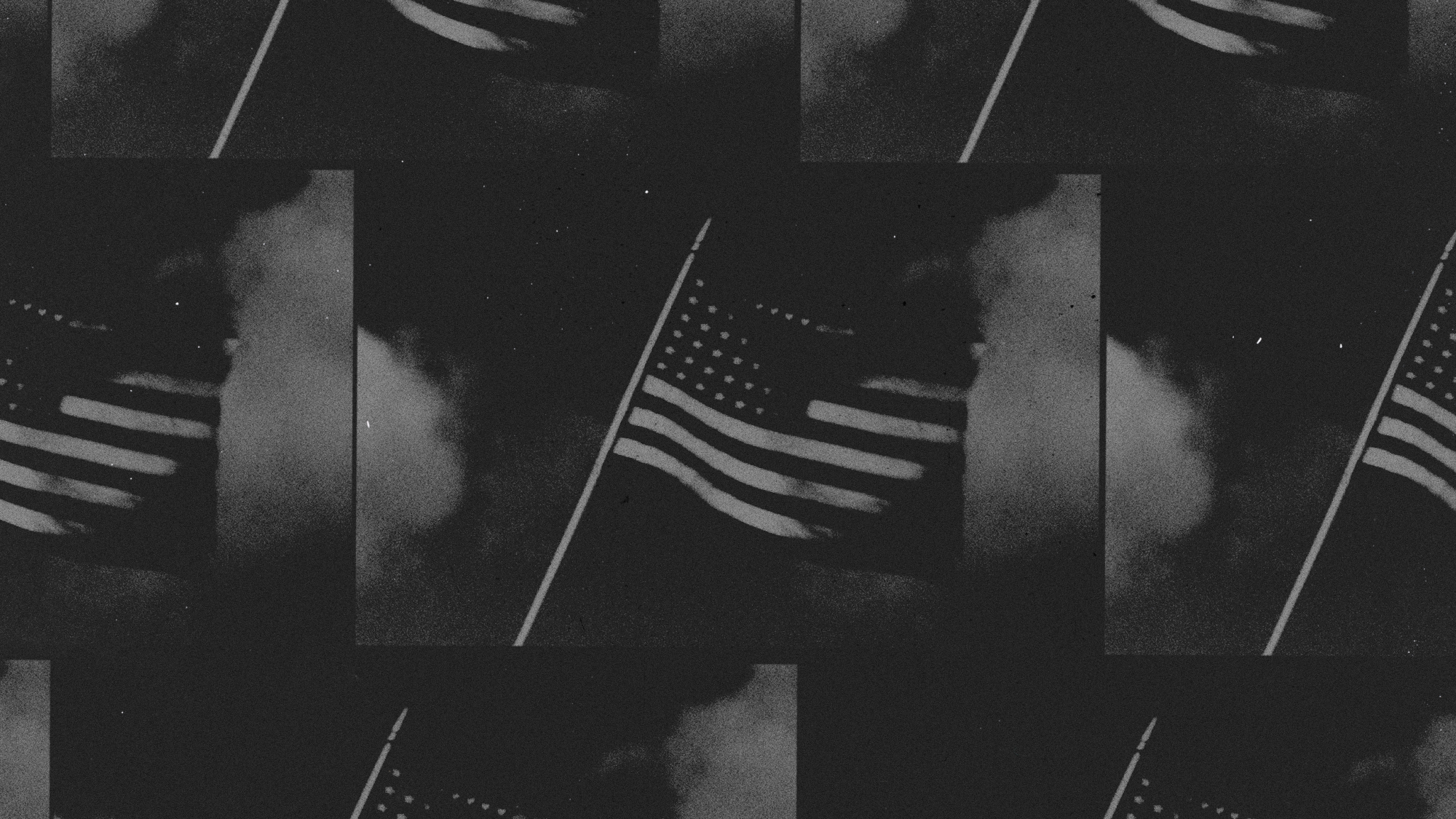The future of Nato: can the alliance bounce back after Trump?
Approach to China could be crucial to the organisation’s chances of future success

A free daily email with the biggest news stories of the day – and the best features from TheWeek.com
You are now subscribed
Your newsletter sign-up was successful
After the tumultuous presidency of Donald Trump, the Nato alliance looked to Joe Biden for renewed transatlantic support as it met in Brussels this week.
And for now, at least, the new US president is making positive noises to the 30-strong group of Western nations, describing America as having a “sacred obligation” to its allies and saying that Nato is “critically important” to his country.
Indeed, after the “freewheeling theatrics” of Trump – who called Nato “obsolete” and even “delinquent” in a spat over defence spending in which he threatened to withdraw the US from the alliance entirely – it has fallen to Biden to “repair the damage”, writes The Guardian. Nevertheless, experts caution that the Trump era will have “lasting consequences”, says the newspaper.
The Week
Escape your echo chamber. Get the facts behind the news, plus analysis from multiple perspectives.

Sign up for The Week's Free Newsletters
From our morning news briefing to a weekly Good News Newsletter, get the best of The Week delivered directly to your inbox.
From our morning news briefing to a weekly Good News Newsletter, get the best of The Week delivered directly to your inbox.
On meeting Nato Secretary-General Jens Stoltenberg on Monday, it was clear that Biden wished to underline his country’s commitment to the cause. “I just want all of Europe to know that the United States is there,” he said. “Nato is critically important for the US interest in and of itself.”
He also affirmed Nato’s mutual defence pledge, Article 5, which says an attack on one member is an attack on all, as “a sacred obligation”.
Biden secured a “diplomatic victory” at the summit in the form of a communique, which described China as presenting “systemic challenges to the rules-based international order” and to “areas relevant” to Nato security, says Reuters.
“We remain concerned with China’s frequent lack of transparency and use of disinformation,” says the Nato statement.
A free daily email with the biggest news stories of the day – and the best features from TheWeek.com
This is a significant step forward for Biden, who has sought a more united approach to China from his diplomatic partners at both the G7, which took place over the weekend, and from Nato, urging leaders to more robustly counter Bejing’s growing influence and military prowess.
Yet, this is likely to be a sticking point, with “growing apprehension among a number of Nato states that taking too combative a stance with Beijing will harm them economically”, says The Independent.
It was clear yesterday that Boris Johnson does not share Biden’s strength of feeling on China, as he told reporters yesterday: “When it comes to China, I don't think anybody around the table wants to descend into a new Cold War with China.”
But Nato’s approach to Beijing will be a “central question for the alliance’s future”, argues Bruce Jones, a senior fellow at the Brookings Institute. “If the United States views China as its core strategic challenge and NATO is its most important alliance, what happens to NATO if there’s no match between those two?” he writes.
Nato must find a way to “add value”, argues Jones, “whether by contributing to U.S.-led crisis management planning in Asia, or through a focus on technological and economic resilience – ideally, both”.
And Biden has ruffled feathers among central European Nato states too, over his approach to the Nord Stream 2 (NS2) pipeline. Despite his administration’s opposition to the project – a gas pipeline from Russia to Germany that will bypass Ukraine and increase European dependence on Russia – the US has chosen not to sanction the German company building the pipeline.
“The mood across Central Europe is souring after the NS2 decision,” Michal Baranowski, an expert at the Warsaw office of the German Marshall Fund, an American think-tank, told The Economist. “The feeling is one of betrayal.”
But Biden is keen to maintain good ties with Germany – which is China’s largest customer and supplier in Europe – as an important ally in “managing” China’s rise.
“Its careful calibration shows that it prioritizes maintaining a common front on China with Germany over preserving solidarity with Central and Eastern European allies on Russia,” writes Jeremy Shapiro in Politico.
“Biden’s reasons for de-prioritizing the European allies extend beyond geography,” he adds. “There is considerable skepticism in Washington that a divided, self-interested Europe will ever manage much support for U.S. efforts against China.”
Meanwhile, despite a more cooperative-minded US for the time being, and a decidedly more diplomatic president, “Nato allies also know that four years can go by pretty quickly in world affairs,” Karin von Hippel, director general of the Royal United Services Institute think tank, told The Guardian.
“They know that Trump, or a politician like him, could return to the presidency soon. They have to imagine a world where the US is not there all the time.”
The future of the alliance looked most imperilled during the Trump years, with French President Emmanuel Macron proclaiming it “brain dead” in The Economist after Turkey, a Nato member, had entered northern Syria in October without consulting any Nato partner apart from the US.
Indeed, as America looks to oppose China in an increasingly stringent manner, and with friction over other key issues like the US withdrawal from Afghanistan, “the watchword in Brussels these days is ‘strategic autonomy,’ meaning autonomy from the United States”, argues The New York Times.
European nations are “finding that cheap security from Washington carries mounting costs: dependence on an erratic superpower, pressure to restrict business with China and Russia, and division in Europe itself”.
Sorcha Bradley is a writer at The Week and a regular on “The Week Unwrapped” podcast. She worked at The Week magazine for a year and a half before taking up her current role with the digital team, where she mostly covers UK current affairs and politics. Before joining The Week, Sorcha worked at slow-news start-up Tortoise Media. She has also written for Sky News, The Sunday Times, the London Evening Standard and Grazia magazine, among other publications. She has a master’s in newspaper journalism from City, University of London, where she specialised in political journalism.
-
 How the FCC’s ‘equal time’ rule works
How the FCC’s ‘equal time’ rule worksIn the Spotlight The law is at the heart of the Colbert-CBS conflict
-
 What is the endgame in the DHS shutdown?
What is the endgame in the DHS shutdown?Today’s Big Question Democrats want to rein in ICE’s immigration crackdown
-
 ‘Poor time management isn’t just an inconvenience’
‘Poor time management isn’t just an inconvenience’Instant Opinion Opinion, comment and editorials of the day
-
 How are Democrats turning DOJ lemons into partisan lemonade?
How are Democrats turning DOJ lemons into partisan lemonade?TODAY’S BIG QUESTION As the Trump administration continues to try — and fail — at indicting its political enemies, Democratic lawmakers have begun seizing the moment for themselves
-
 How corrupt is the UK?
How corrupt is the UK?The Explainer Decline in standards ‘risks becoming a defining feature of our political culture’ as Britain falls to lowest ever score on global index
-
 How did ‘wine moms’ become the face of anti-ICE protests?
How did ‘wine moms’ become the face of anti-ICE protests?Today’s Big Question Women lead the resistance to Trump’s deportations
-
 How are Democrats trying to reform ICE?
How are Democrats trying to reform ICE?Today’s Big Question Democratic leadership has put forth several demands for the agency
-
 Why is Tulsi Gabbard trying to relitigate the 2020 election now?
Why is Tulsi Gabbard trying to relitigate the 2020 election now?Today's Big Question Trump has never conceded his loss that year
-
 Is the American era officially over?
Is the American era officially over?Talking Points Trump’s trade wars and Greenland push are alienating old allies
-
 Trump’s Greenland ambitions push NATO to the edge
Trump’s Greenland ambitions push NATO to the edgeTalking Points The military alliance is facing its worst-ever crisis
-
 Can Starmer continue to walk the Trump tightrope?
Can Starmer continue to walk the Trump tightrope?Today's Big Question PM condemns US tariff threat but is less confrontational than some European allies